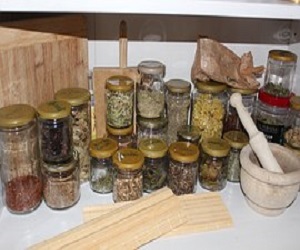


A Powerful Combination For Success

The path to achieving our goals is often paved with hard work, determination, and perseverance. However, one element that can significantly boost our progress and success is gratitude. The practice of gratitude has a profound influence on our mindset, motivation, and overall well-being, making it a valuable tool in the pursuit of our objectives.
Here's how gratitude can empower goal achievement and why it's worth incorporating into your daily life.
Positive Mindset: Gratitude fosters a positive mindset by encouraging us to focus on the good in our lives. When we appreciate our current circumstances, we cultivate a sense of optimism and belief in the possibility of achieving our goals. This positive outlook can provide the mental energy and resilience needed to overcome challenges on the path to success.
Motivation And Energy: Practicing gratitude can boost motivation and energy levels. When we are grateful for what we have, we are more likely to approach our goals with enthusiasm and a sense of purpose. This motivation can drive us to take consistent action towards achieving our objectives.
Resilience In The Face Of Setbacks: Gratitude is a powerful tool for building resilience. When we encounter obstacles or setbacks on the journey toward our goals, the practice of gratitude allows us to find silver linings in these challenges. It helps us reframe setbacks as opportunities for growth and learning rather than insurmountable barriers.
Enhanced Relationships: Expressing gratitude toward others, such as mentors, supporters, and collaborators, strengthens our social connections. These relationships can be vital for goal achievement. People who feel appreciated are more likely to offer assistance, guidance, and support, making the path to success smoother and more collaborative.
Goal Clarity: Gratitude can also provide clarity in goal setting. By reflecting on what truly matters to us and what we are thankful for, we can identify the goals that align with our values and aspirations. This alignment can fuel our determination and drive to achieve these goals.
Stress Reduction: Gratitude reduces stress and anxiety by promoting a sense of well-being and contentment. When we are less stressed, we can think more clearly and make better decisions, which are essential for effective goal planning and execution.
To incorporate gratitude into your goal achievement journey, start by maintaining a gratitude journal. Regularly reflect on and write down the things you are thankful for, especially those that relate to your goals. Additionally, express gratitude to those who support and inspire you on your path to success.
Gratitude and goal achievement are intimately connected. By fostering a positive mindset, boosting motivation, building resilience, enhancing relationships, providing goal clarity, and reducing stress, gratitude becomes a valuable ally in reaching your objectives. In a world full of challenges and distractions, incorporating gratitude into your daily life can provide the mental and emotional support needed to navigate the road to success with determination, enthusiasm, and a heart filled with appreciation.
 Berries: Blueberries, strawberries, and raspberries are loaded with antioxidants, such as flavonoids, which have anti-inflammatory properties and can enhance your immune response.
Berries: Blueberries, strawberries, and raspberries are loaded with antioxidants, such as flavonoids, which have anti-inflammatory properties and can enhance your immune response.
Garlic: This pungent bulb not only adds flavor to your dishes but also contains allicin, a compound with immune-enhancing properties. Garlic has been used for centuries for its potential to reduce the severity of colds and flu.
Ginger: Ginger is well-known for its anti-inflammatory and antioxidant effects. It can help reduce inflammation and support the immune system.
Turmeric: Curcumin, the active compound in turmeric, has powerful anti-inflammatory and antioxidant properties. It can help the immune system fight off various infections.
Yogurt: Probiotics found in yogurt and other fermented foods support the gut microbiome, which is closely linked to the immune system. A healthy gut promotes a strong immune response.
Spinach: This leafy green is rich in vitamin C and contains numerous antioxidants and beta-carotene. These nutrients work together to support the immune system.
Almonds: Almonds are a great source of vitamin E, an antioxidant that's crucial for maintaining a healthy immune system. It's also good for your skin.
Green Tea: Green tea is packed with flavonoids, particularly epigallocatechin gallate (EGCG), which enhances immune function and has antiviral effects.
Mushrooms: Varieties like shiitake, reishi, and maitake mushrooms contain beta-glucans, compounds that can boost the activity of natural killer cells and other immune cells.
A Comparative Exploration
 Here are some of their defining characteristics:
Here are some of their defining characteristics:
Cultural Significance: Traditional herbal remedies carry cultural significance and are often closely tied to the identity and heritage of specific communities. They reflect the wisdom and experience of generations past.
Holistic Approach: Traditional remedies often take a holistic approach, considering not only physical symptoms but also emotional and spiritual aspects of well-being. They emphasize the interconnectedness of body, mind, and spirit.
Time-Tested: Traditional remedies have withstood the test of time, proving their efficacy over centuries of use. Their long history speaks to their value and reliability.
Plant Synergy: Traditional remedies often use whole plants or plant parts, believing that the synergy of various compounds within the plant is key to their therapeutic effect.
 The constant connectivity and digital age have brought about a new set of challenges. Our smartphones and computers, while undoubtedly valuable tools, can also be sources of mental strain. The ever-present notifications, the compulsion to check social media, and the expectation of being constantly available can lead to heightened stress and decreased well-being. It's essential to establish healthy boundaries with technology and allocate time for digital detox to protect our mental health.
The constant connectivity and digital age have brought about a new set of challenges. Our smartphones and computers, while undoubtedly valuable tools, can also be sources of mental strain. The ever-present notifications, the compulsion to check social media, and the expectation of being constantly available can lead to heightened stress and decreased well-being. It's essential to establish healthy boundaries with technology and allocate time for digital detox to protect our mental health.
Moreover, the demands of daily life can sometimes lead to social isolation. With packed schedules and the pressures of work, we might neglect our social relationships, which are crucial for our mental well-being. Loneliness and a lack of social support can exacerbate feelings of depression and anxiety. It's vital to make time for social connections, nurturing relationships with family and friends to foster a sense of belonging and emotional support.
The toll on mental health is not just a matter of emotional well-being; it has a profound impact on physical health too. High levels of stress and anxiety can lead to various physical health issues, including cardiovascular problems, digestive disorders, and compromised immune function. Therefore, addressing mental health concerns is not just about emotional comfort but also about preserving one's overall health and longevity.
To counteract the toll of daily life on mental health, it's essential to prioritize self-care. This includes setting aside time for relaxation, engaging in physical activity, and maintaining a healthy work-life balance. Seeking professional help is a valuable option for those who find themselves struggling with overwhelming stress, anxiety, or depression. Mental health professionals can offer valuable guidance and support to navigate the challenges of daily life.






Nurturing Strong Bonds
 Long-Term Bonding: Resilient relationships are more likely to withstand the test of time. By learning to adapt to each other's changing needs and circumstances, couples and families can build enduring bonds.
Long-Term Bonding: Resilient relationships are more likely to withstand the test of time. By learning to adapt to each other's changing needs and circumstances, couples and families can build enduring bonds.
Practical Strategies For Building Resilience In Relationships
Effective Communication: Open, honest, and empathetic communication is the foundation of resilient relationships. Encourage active listening and express feelings and concerns constructively.
Conflict Resolution Skills: Learn how to resolve conflicts in a healthy way. Use "I" statements to express your feelings and avoid blaming. Seek compromise and solutions that benefit both parties.
Emotional Intelligence: Develop emotional intelligence by recognizing and managing your emotions and those of your loved ones. Understanding and regulating emotions can prevent unnecessary conflict.
Quality Time: Spend quality time with your loved ones. These shared experiences create a sense of togetherness and strengthen your connection.
Respect Boundaries: Respect each other's boundaries and individuality. It's crucial to give each person the space and autonomy they need.
Adaptability: Understand that life brings change, and relationships must adapt. Flexibility and a willingness to adjust to new circumstances are key to resilience.
Problem-Solving: Work together to find solutions to challenges. Instead of dwelling on problems, focus on identifying actionable steps to address them.
Tips And Insights
 1. Understanding Gluten: The first step in making dietary adjustments is understanding what gluten is and where it's commonly found. Gluten is a protein found in wheat, barley, and rye. It provides elasticity to dough and is prevalent in many staple foods like bread, pasta, and baked goods.
1. Understanding Gluten: The first step in making dietary adjustments is understanding what gluten is and where it's commonly found. Gluten is a protein found in wheat, barley, and rye. It provides elasticity to dough and is prevalent in many staple foods like bread, pasta, and baked goods.
2. Identify Gluten-Free Alternatives: The foundation of a successful gluten-free dietary adjustment is to identify gluten-free alternatives for your favorite foods. Fortunately, there's a wide range of gluten-free products available, including gluten-free bread, pasta, and flour. Experiment with different brands and types to find those you enjoy most.
3. Reading Labels: Master the art of reading food labels. Manufacturers are required to clearly label foods that contain wheat, but gluten can hide under different names like barley malt, modified food starch, or malt vinegar. Familiarize yourself with these terms to avoid accidental gluten consumption.
4. Focus On Naturally Gluten-Free Foods: Naturally gluten-free foods include fruits, vegetables, meat, poultry, fish, dairy products, legumes, and gluten-free grains like rice and quinoa. These form the basis of a healthy gluten-free diet and provide essential nutrients.
5. Avoid Cross-Contamination: Cross-contamination is a significant concern when it comes to gluten-free dietary adjustments. Ensure that your kitchen and cooking utensils are thoroughly cleaned to prevent contact with gluten-containing foods. If you share a kitchen with gluten-eating family members, designate gluten-free cooking areas and use separate equipment to avoid cross-contamination.